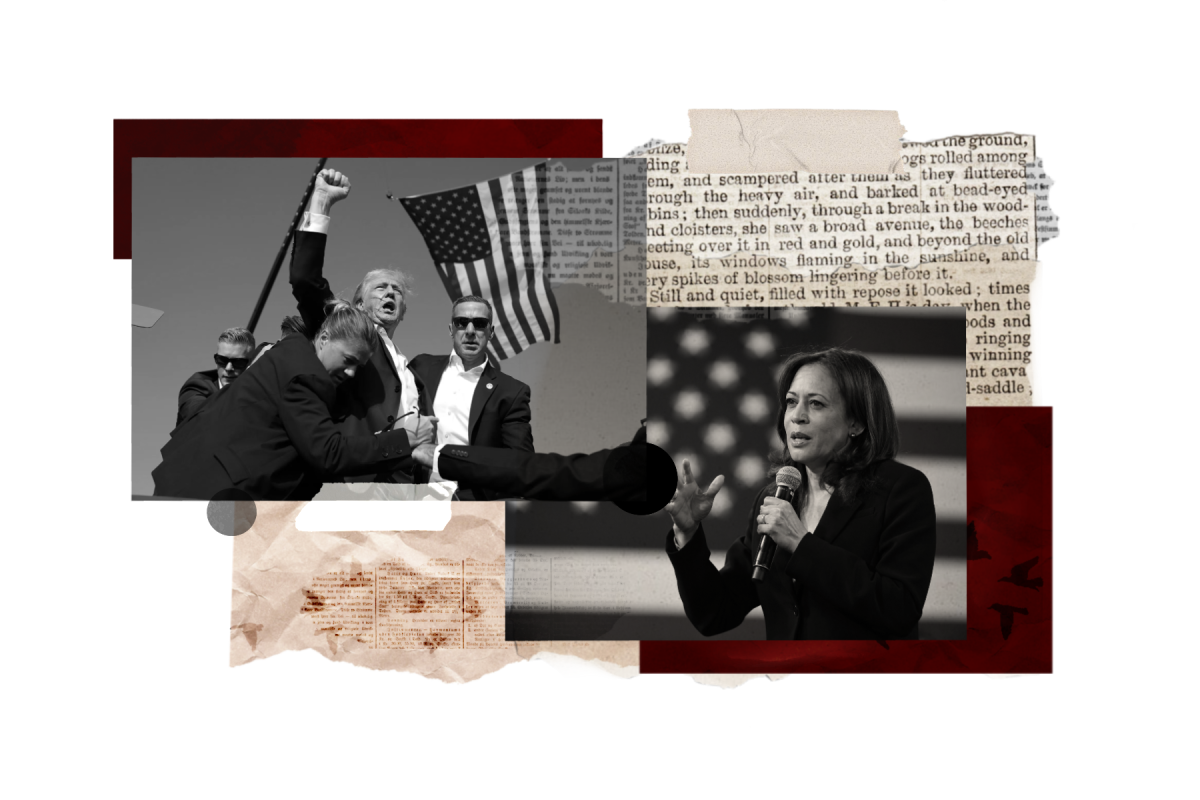The Tarantino Revolution
Director Quentin Tarantino: How Has He Changed the movie Industry? From violence to profanity, Tarantino has directed movies that show the world the gruesome side of entertainment.
December 3, 2019
Once Upon a Time in America,” the west, and now Hollywood. The Spaghetti Western genius of Sergio Leone inspired Quentin Tarantino, now bringing Tarantino one step closer to becoming one of the most notable directors in history.
Leone’s influence on Tarantino is reflected in Tarantino’s retro-vintage movies possessing gritty, raw and ultraviolet gravity that so many movies lack along with satirical subject matter, nonlinear storylines and aestheticization of violence.
While some argue that this is due to his pilfering from directors and other movies, Tarantino retorts that he’s “paying homage” to movies that sculpted his way of directing. In this way: how has Tarantino revolutionized the movie industry?
It’s no secret that Tarantino craves the controversy. In addition to the violence, gore, drugs and occasional torture scene, Tarantino uses extreme gun violence and demeaning racial slurs to emotionally trigger audiences.
Despite this, his movies continue to amaze audiences alike when touching down on topics like racism (“Django Unchained”), sexism (“Kill Bill”) and fascism (“Inglorious Bastards”).
The director is unorthodox for many reasons, but to start, Tarantino never received a formal film education: he worked in a video store for years. He watched Spaghetti Westerns and classic Asian Samurai films, and the inspiration from those two genres are most prominently seen in “Kill Bill.” Kill Bill may be his most apparent homage, especially to the Asian cinema that he has taken inspiration from since working in the now-extinct video store.
The 1973 revenge film “Lady Snowblood” from director Toshiya Fujita is by far the biggest influence on “Kill Bill,” where the stories are essentially identical in the action-packed Kung Fu scenes.
Besides, the Spaghetti Westerns of Leone also influenced “Kill Bill” — the double exposure shots, overhead shots, and the wide open shots in the black and white flashbacks all call back to Leone’s best-known films like “Once Upon a Time in the West.”
The director is a history buff. However, his movies are purposefully historically inaccurate. “Inglorious Bastards,” arguably Tarantino’s best film, ends with Hitler being killed by a group of indignant Jews in a movie theater fire; unfortunately, this isn’t how the story went in reality.
Tarantino aims to alter history through his movies not necessarily to glorify it, but to communicate messages through exaggeration. “When I make a film, I am hoping to reinvent the genre a little bit. I just do it my way. I make my own little Quentin versions of them,” Tarantino said.
Tarantino’s testimony on slavery, “Django Unchained,” definitely shocked audiences. While some people believed it appropriately represented the language of the era, many other people, including director Spike Lee, thought the politics behind it were racist.
Lee refused to see the film, explaining, “All I’m going to say is that it’s disrespectful to my ancestors… American slavery was not a Sergio Leone Spaghetti Western.”
In the midst of the controversy behind the film, “Django Unchained” grossed almost $163 million worldwide, making it Tarantino’s most successful film — apparently not everyone agreed with Spike Lee.
What all his movies have in common is extreme, dramatic, and eccentric violence that infatuates audiences. A perspective on the director from inside the movie industry, former producer Jill Levinson says “The massive violence is so exaggerated that it’s almost comical, it has made [Tarantino movies] so outlandish that they’re possible to watch.” Levinson talks about “The intense violence, excessive blood, and even guts.”
However, while his movies are over the top, he has opened the door to new styles of directing, from extreme violence like his own to simple monochromatic colors. “His absurdity has inspired a new-age of directors like, Wes Anderson,” Levinson says.
Tarantino not only showed audiences what movies are, but he has showed directors what movies could be.
He proved that no formal education is required to make a movie, but creativity is the most important aspect. Wes Anderson, another notable director, has a unique and obvious style, one with extreme symmetry and moody monochromatic hues. He is just one example of a director who has found sanction in Tarantino’s overt movie style, therefore paving the way to another realm of film-making.
Tarantino found creativity in movie references and violence — he altered audiences perspectives and encouraged independent directors to do something different. He revolutionized the movie industry. What hasn’t he done?


































